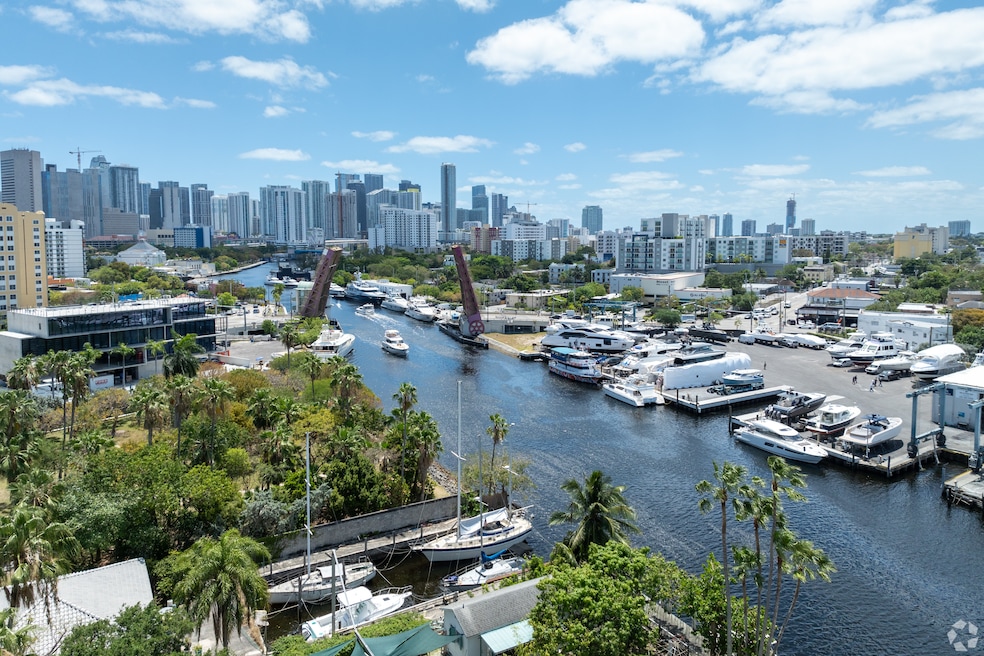Florida's revised condominium safety law, giving associations more time to complete inspections and finance reserves, has taken effect, and it could impact sales volumes in the coming months and years.
Some analysts say the new legislation ultimately will lead to severe price cuts and a seismic shift in the condo buyer profile, particularly in South Florida. Other industry observers said the law is a recalibration designed to make the market healthier and more transparent.
Gov. Ron DeSantis signed bills that provide another year for condo buildings that are at least 30 years old to complete structural-integrity inspections. The new laws also offer a two-year pause in funding reserves following those surveys. The inspections now apply to buildings with three habitable stories or more. The old 2022 law applied to buildings with three or more stories, including levels for parking and other uses where no one lives.
What's more, condo boards can now use lines of credit or loans to fund their reserves.
"I think a lot of legislators heard from their condo constituents and wanted to provide some extra breathing room," said Donna DiMaggio Berger, a condo lawyer with Becker & Poliakoff in Fort Lauderdale, in an email.
But the new law, enacted in response to the 2021 collapse of the 12-story Champlain Towers South in Surfside, Florida, that killed 98 people, is merely a "stopgap," said Peter Zalewski, founder of the CondoVultures firm and the Miami Condo Investment Club.
"It doesn't provide any sort of golden parachute to get the market out of the crisis it's been in," he told Homes.com.
Sales drop over past three years
After topping out at 160,177 in 2021, Florida condo and townhouse sales have steadily declined in each of the past three years, according to the Florida Realtors. In 2024, sales failed to even reach the 100,000 benchmark and totaled 94,380, down 10.5% from 2023, the data shows.
The sales drops are leading to a leveling of prices, with the statewide median price of $320,000 off 0.8% last year from 2023, the first annual price decline since 2011.
At the end of May, active condo and townhouse listings statewide totaled 76,148, up 28.8% from May 2024, according to Florida Realtors. In Miami-Dade County, active listings in May increased nearly 41% to 18,879, Miami Association of Realtors figures show.
The state has more than 1.5 million condo units and about 27,000 associations, according to the Florida Department of Business and Professional Regulation. Some observers estimate the new safety law could affect 70% of the state's condo stock.
Units in Miami-Dade, Broward and Palm Beach counties are home to much of the state's condo supply. The tri-county region has a population of about 6.5 million, making it the biggest metropolitan area in Florida, the nation's third-most-populous state.
The swollen number of listings already favors buyers, and Zalewski expects buyers to remain cautious and skeptical, particularly when it comes to older buildings that may require potentially hefty assessments to pay for repairs. The only way to get buyers to take on that risk is to drastically cut prices, he said.
Less-expensive condos 'don't fly down here'
Even units in newer condo buildings that aren't subject to the law could be slow to trade hands because would-be buyers will want to see how the overall market responds before acting, Zalewski said.
He estimates it could be eight years before South Florida's condo market returns to normal. In the meantime, he said, owners who can't afford to pay their share of repairs will look to sell their units at a discount, while developers will buy older condo towers and terminate the associations, making way for glitzy new towers.
He expects developers to break ground on a new generation of safer, more expensive buildings, completing them by about 2033. Under that scenario, many South Florida condos would be out of reach for retirees on fixed incomes and instead marketed to well-heeled cash buyers looking for second or third homes.
"It's inevitable," Zalewski said. "The $300,000 condos don't fly down here anymore."
But the situation isn't quite that dire, said Danielle Blake, chief of residential and advocacy for the Miami Association of Realtors. She leads the trade group's condo task force.
She points out the new safety law requires local governments to report building inspection details to the state. A research arm of the Florida Legislature will track the data, and that will bring public transparency to the state's condo stock, she said.
Interest rates real culprit
Miami Association of Realtors data shows units in aging buildings subject to the new law are selling slightly faster than those in newer buildings, likely because they're more affordable to typical consumers, Blake told Homes.com. While Miami-Dade existing condo sales are down, plummeting 25.1% in May from a year ago, she blames that on elevated mortgage rates rather than concerns about the safety law.
"It's really the interest rates hurting the market — not just in South Florida, but across the country," she said.
An important component of the law is the availability of financing to ease the sting of assessments, Blake said. A Miami-Dade County program provides funding assistance to help unit owners pay for repairs. Owners making less than 140% of the area median income can receive up to a $50,000 loan, with monthly interest-free payments for 40 years.
Those favorable financing terms could be a game-changer in Miami-Dade, causing owners who previously listed their units for sale to reconsider, according to Blake.
"They probably would pull it off the market because now they can afford it," she said. "This is another option. More options are good."

